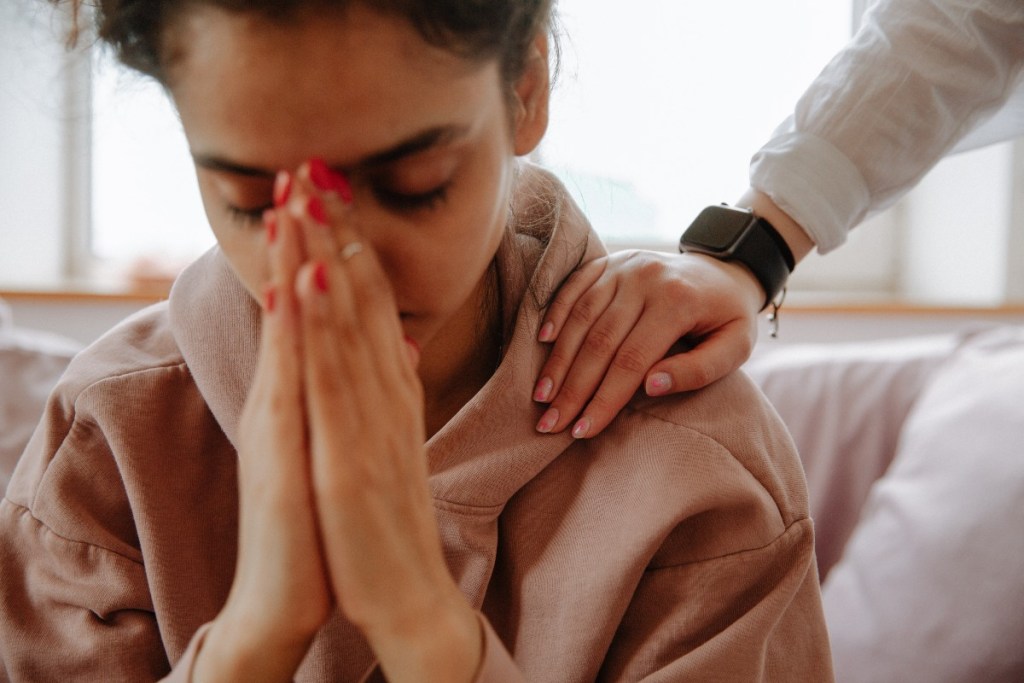If you think you are experiencing symptoms of stress or depression, you are not alone.
A Gallup poll revealed that 57% of U.S. and Canadian workers experienced daily stress in 2020, the highest levels globally. About 17.3 million adults in the U.S. report having had at least one major depressive episode.
Stress and depression can co-exist and may have similar symptoms, but they are two distinct mental health concerns. Knowing the difference between stress and depression is essential.
Stress tends to be phasic. You may feel overwhelmed for a few days at work but then feel relief when the weekend rolls around. It’s still a mental health concern, and help is available.
Depression is not fleeting. A mental health provider will usually diagnose it when symptoms, including decreased energy and feelings of hopelessness, last at least two weeks.
Let’s discuss how the two conditions are similar and different.

Why are stress and depression easily confused?
Though stress and depression are two different issues, people sometimes use the terms interchangeably. There are a few critical reasons for the confusion.
Some symptoms are similar
There is some overlap in symptoms between stress and depression, including:
- Sleep issues (When you’re stressed, you may struggle to fall asleep. Depression may also change sleep habits, though it could cause you to sleep less or more than usual.)
- Anger
- Memory problems
- A shift in eating habits
- Difficulties performing day-to-day tasks. However, people who are stressed may find solace in happy moments, such as seeing an old friend, whereas individuals with depression are less likely to find joy in that, either.
- Trouble focusing
- Feelings of hopelessness
Though there is an overlap in common symptoms, it’s critical to remember signs of depression usually last longer.
You may be experiencing both
It’s entirely possible to be stressed and depressed at the same time. What’s more, a 2004 study suggested that stress hormones may disrupt the brain and cause depression. If that’s the case, it can be challenging to differentiate between the two concerns as you’ll be experiencing symptoms of each.
Self-diagnosis is hard
Most of us are not mental health professionals. It’s challenging to go through diagnostic criteria to accurately evaluate our symptoms, particularly when we aren’t feeling like ourselves.
Even individuals specializing in mental health can benefit from seeking an outside opinion to determine whether we are experiencing stress, depression, or both. A mental health provider can ask questions, such as about how long symptoms have persisted, to make a proper diagnosis.
Why is knowing the difference between stress and depression important?
Stress and depression aren’t pleasant to live with, particularly if you are experiencing one or both chronically (Though stress is typically fleeting, it can be chronic). Help is available. Some treatment options are similar, but the goals and approaches will depend on whether you are experiencing stress or depression.
Understanding the two issues are different can also help patients better understand what their minds and bodies are experiencing.
Part of the reason mental health professions diagnose stress and depression differently is that they have distinct causes, which affect treatment approaches and goals. Stress is a physical reaction that occurs when the amygdala of your brain, which controls your fear response, is activated. When you are stressed, you may go into “fight-or-flight” mode — that’s your body’s natural way of protecting you from harm.
Researchers are still learning about the causes of depression. Common theories include biochemical imbalances of neurotransmitters such as serotonin and dopamine or a shift in electrical activity between the brain’s nerve cells.
What treatments are available to people experiencing stress and depression?

- Working to reduce the reasons for stress, such as paring down your schedule or finding a new gig
- Meditation
- Exercise
- Therapy
Depression is an illness, and it’s not curable. People with depression cannot will themselves to “just get over” their condition.
However, it’s possible to manage symptoms. The two most common ways to treat depression are medication, such as SSRIs, and therapy. Studies show that combining medication with psychotherapy is more effective than treating major depression with medication alone. Lifestyle changes, including meditation and exercise, can also lessen depression symptoms.
One of the most significant similarities between stress and depression is that they are common and treatable. They are also different, and knowing the difference between stress and depression can help you find the help you need. It’s best to get diagnosed by a qualified mental health professional because the two issues are commonly confused.
BlissMark provides information regarding health, wellness, and beauty. The information within this article is not intended to be medical advice. Before starting any diet or exercise routine, consult your physician. If you don’t have a primary care physician, the United States Health & Human Services department has a free online tool that can help you locate a clinic in your area. We are not medical professionals, have not verified or vetted any programs, and in no way intend our content to be anything more than informative and inspiring.



